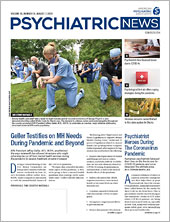There is plenty of evidence demonstrating that cognitive-behavioral therapy (CBT) and other psychosocial interventions can improve a person’s mood. A meta-analysis appearing in JAMA Psychiatry now shows that psychosocial interventions might also improve the immune system. What’s more, the study suggests that the immune benefits of psychosocial therapies persist for months after treatment ends.
This finding could have significant global implications, said senior study investigator George Slavich, Ph.D., an associate professor of psychiatry and biobehavioral sciences at the University of California, Los Angeles. A poorly functioning immune system can lead to chronic inflammation, which is associated with diseases both physical (such as diabetes and cardiovascular disease) and mental (such as schizophrenia and Alzheimer’s disease). The findings are also timely in the era of COVID-19, as people with weaker immune systems are at risk of worse outcomes if infected.
Medications ranging from the over-the-counter anti-inflammatory drug ibuprofen to the potent immune system suppressor infliximab are commonly prescribed to reduce inflammation. However, some of these drugs can be expensive, and all of them—even store-bought pills—come with a risk of side effects. Psychosocial therapies can offer a less risky and more holistic option for immune health, Slavich said.
Slavich and colleagues combined data from 56 clinical studies that assessed the effects of a psychosocial intervention on some measure of immune health. Most of the studies involved participants with chronic conditions such as cancer or HIV.
These 56 studies encompassed eight types of interventions: behavior therapy (which seeks to help patients understand and change problematic behaviors), cognitive therapy (which teaches patients how to change negative thoughts or mindset), CBT (which incorporates behavioral and cognitive elements), CBT plus additive support (such as telephone follow-ups), bereavement or supportive therapy, psychoeducation, other psychotherapy (such as stress management), and multiple or combined interventions. The studies also looked at seven immune system biomarkers that are commonly assessed in patients: proinflammatory cytokine levels, anti-inflammatory cytokine levels, antibody levels, white blood cell counts, white blood cell activity, viral load (for example, HIV levels), and other outcomes (for example, number of postoperative infections).
Overall, the participants who received any psychosocial intervention experienced a 14.7% increase in positive immune outcomes (for example, lower viral loads) and an 18.0% decrease in harmful outcomes (for example, proinflammatory cytokines) compared with those who did not receive a psychosocial intervention. The benefits of psychosocial intervention were similar regardless of patient age, sex, or duration of therapy; improvements were noticeable up to six months after the last therapy session.
As a comparison, the authors noted that the observed level of improvement in measures like cytokine levels following psychosocial treatment was similar to what has been reported for patients receiving infliximab monthly to treat their rheumatioid arthritis—a treatment regimen that runs about $25,000 a year.
Slavich cautioned that the meta-analysis did not examine associations between immune biomarker improvements and patients’ health outcomes. “We need additional research to address the important question of whether these psychosocial interventions are directly related to better patient health,” he told Psychiatric News.
“We also need to understand the mechanisms that underlie psychosocial intervention–related improvements in immunity,” Slavich continued. “Are psychosocial interventions helpful because they get people to eat better, sleep better, and/or exercise more often? Or maybe psychotherapy is helpful for the immune system because it changes how individuals think and feel.”
The meta-analysis revealed clues about the potential benefits of group therapy: Patients who received group-based therapy had marginally better improvements than those receiving individual care. “A group setting presents the patient with an opportunity to interact with affected peers and benefit from a variety of group-specific therapeutic factors, such as the instillation of hope, universality, altruism, interpersonal feedback, and cohesion,” wrote Veronika Engert, Ph.D., of the Institute of Psychosocial Medicine and Psychotherapy at Jena University Hospital in Germany and colleagues in an editorial accompanying the study.
The possible importance of a group element is also relevant in the current era when tele-mental health is now the norm and group sessions have a different dynamic. The meta-analysis did not compare in-person versus online interventions, and the impact of online psychotherapy on the immune system needs to be evaluated as well.
This analysis was supported by a Society in Science–Branco Weiss Fellowship, a Young Investigator Grant from the Brain & Behavior Research Foundation, and a grant from the National Institute of Mental Health. ■
“Psychosocial Interventions and Immune System Function. A Systematic Review and Meta-analysis of Randomized Clinical Trials” is posted
here.
The editorial, “Psychosocial Factors in Disease and Treatment—A Call for the Biopsychosocial Model,” is posted
here.

